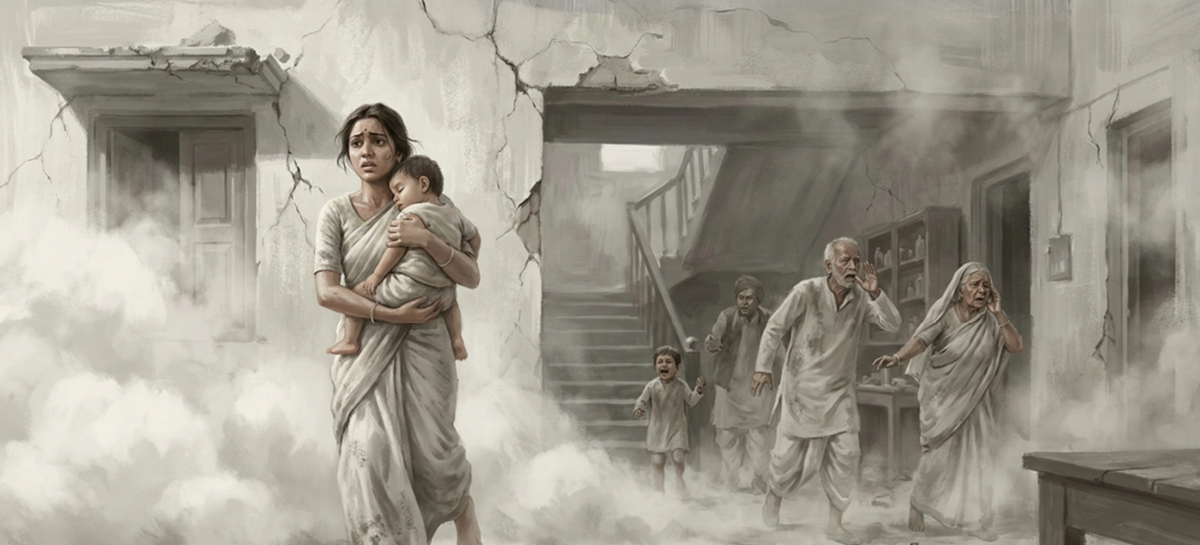In this gentle memoir, our member Ms R. Karmakar takes us back to her childhood in Nasik, where life unfolded at a slower pace and a simple life brought important learnings.
As a girl, I grew up in Nasik, Maharashtra. In those days, the town was not as developed as it is today, but it was renowned for two major presses where postal stamps were designed and printed. Did you know that our currency notes, too, are meticulously designed before they are printed? My father, an artist, was one of the designers at one of these presses, and we—my parents and their three children—lived in the government quarters.
When I look back at our lifestyle then, only one word comes to mind: “simple”. I was the eldest of the siblings, with a sister and a brother who was the youngest of us all. I was at a convent school until class 5 where we were taught by nuns.
Growing up, I was largely unaware of Bengali festivals. Instead, I was immersed in local celebrations such as Diwali, the Maharashtrian New Year, and Ganesh Puja, which holds the same significance for Maharashtrians as Durga Puja does for Bengalis. However, we did not receive new clothes as festive gifts; at most, we would get a new set of clothes on our birthdays.
It was a completely different world, with another language and distinct food habits. We absorbed the culture around us. We were as fluent in Marathi as we were in Bengali.
On some days, local farmers would organise a haat, a small temporary marketplace. My mother would send me there to buy provisions. Occasionally, fishermen would sell their fresh catch from a nearby river. Before buying fish, I always remembered to check the produce: “If it’s red under the gills and the body is glistening and slippery, it’s fresh,” my mother taught me. I consider this a vital part of my education, for it was here that I learned to bargain and become street-smart.
Later, I travelled to Kolkata for my college education. I stayed in a hostel and had my maternal aunt and uncle as my local guardians. I had to reorient myself all over again to life in the big city, but thankfully the simplicity of my upbringing in Nasik and the discipline instilled in me during my school days saw me through.
(as narrated to Support Elders by our member)


